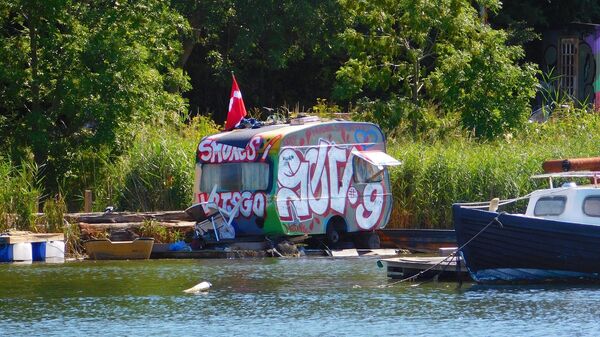Denmark is seeing a growing trend in campsites becoming places of permanent residence, TV2 reported.
Of approximately 100 campsites in Denmark that are open all year, almost half, 47, have people living in them all year round, which means a doubling in the last decade.
According to Danish camping regulations, it is not permitted to have a permanent residence at a campsite all year round. During the winter period, which formally lasts from 1 November to 28 February, you are allowed to spend a maximum of 20 days at a time in your caravan.
Therefore, it is also difficult to estimate the number of campers turned lodgers. In TV 2's survey, however, seven out of ten all-year campsites noted an increase in inquiries from people who want to settle down.
Often, it is a bad economy, with contributing factors such as mortgage default or divorce that forces people seek alternative living arrangements, such as moving into a caravan. For many, it is the only viable option.
“We have no other opportunities”, the couple Bent Christensen and Berit Mortensen, former leisure campers and present-day trailer park residents told TV2. By their own admission, they have been living at a campsite for two years and cannot afford to move back into an apartment.
READ MORE: Norway Successfully 'Eliminates' Poverty
Moving to a campsite allowed Bent Christensen and Berit Mortensen to trim their monthly expenses to a minimum. Back at the apartment, they had to fork out about DKK 10,000 ($1,500) every month. Now, they are down to only DKK 3,000 ($450). According to them, living in the camp has other benefits than purely financial ones.
“We can hear birds chirp from our living room, and walking to a lake only takes minutes. This is a fantastically green area”, Berit Mortensen said.
So far it remains unclear, how much of a priority it is for the Danish authorities to enforce the law in full. In a case at Corona Camping in Borup, Køge Municipality threw the book at permanent campers and began eviction proceedings. This case dates back to 2017, and a ruling has been made that as of December 31 the site must no longer allow permanent residents.
Nevertheless, Bent Christensen and Berit Mortensen, together with a many of their fellow residents of Corona Camping, have no plans to leave.
“We'll stay here, even if it is illegal. They'll have to carry us out”, the couple said.
READ MORE: Half of Danes Against Further EU Expansion, Say It's 'Gone to Far' — Survey
So far, trailer parks have been almost exclusively seen as a US phenomenon, where more than 20 million people, or 6 percent of the population, live in mobile homes. Trailer parks residents are stereotypically viewed as a lower income stratum who have low social status and lead a disorderly and pernicious lifestyle.

